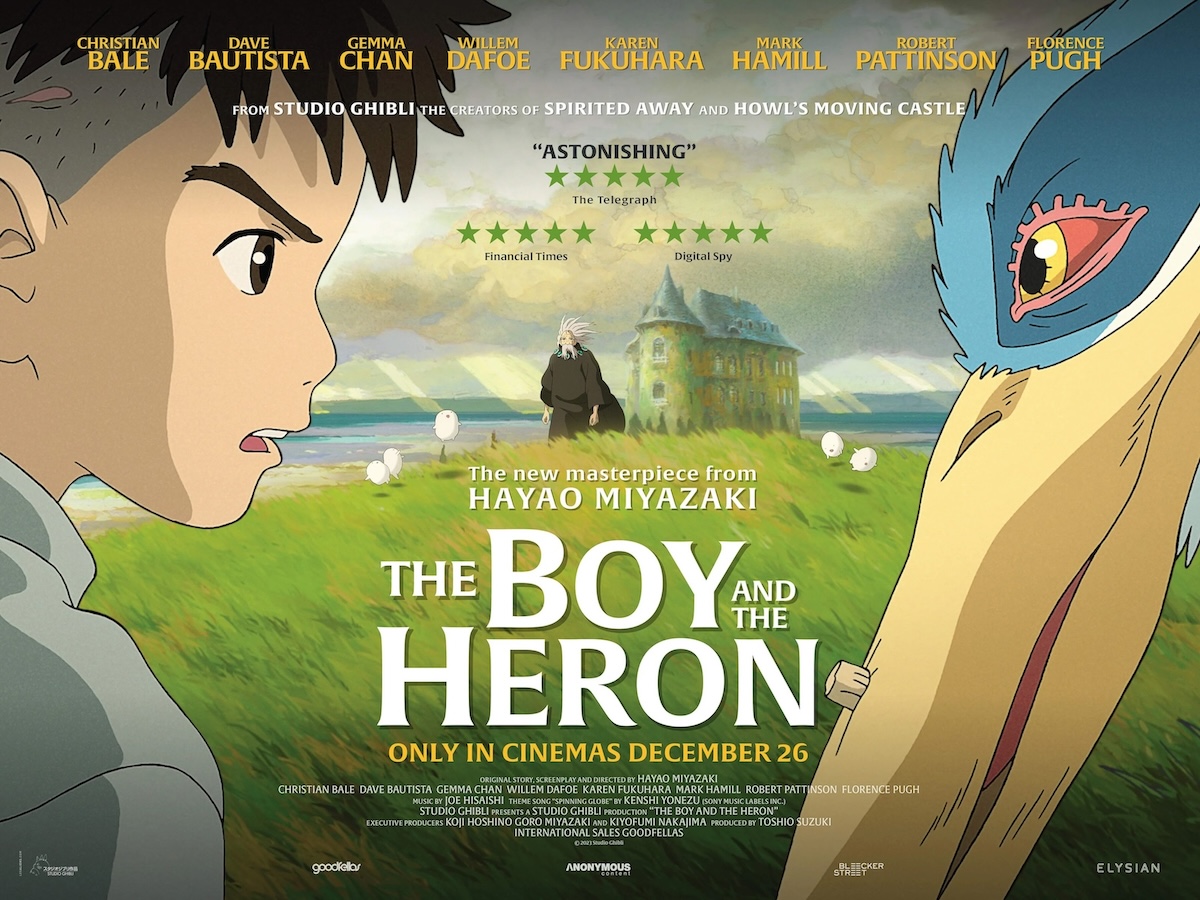We watched Hayao Miyazaki’s The Boy and the Heron yesterday at the theatre, and I liked it. The official plot goes like this:
A young boy named Mahito yearning for his mother ventures into a world shared by the living and the dead. There, death comes to an end, and life finds a new beginning.
Unsurprisingly, the animation is stunning, and the complex story is beautifully narrated. Mahito Maki, the protagonist, is a kid grappling with inner conflicts and insecurities who recently lost his beloved mother in a dramatic accident. The fantastic and very “Miyazakiest” events that unfold once he and his father reach his mother’s family’s rural residence will help him cope with his loss. This movie’s central themes are dealing with strife and loss, letting go of selfishness, and embracing living for and with others. As is often the case with Miyazaki, while the protagonist is a kid (and a young audience may appreciate the content, possibly on a more superficial level), the target audience is adults.
I read that The Boy and the Heron has autobiographical features. Like Mahito, Miyazaki lost his mother as a kid and was forced to evacuate from the city to the countryside during the war. His works commonly find children leaving the city for the rural areas, only to meet the magic and fantastic once they get there. I cannot help but draw a parallel with J.R.R. Tolkien, who devoted much of his youth exploring the outskirts of Birmingham with his brother Hillary. That “kind of lost paradise” and the rural people who inhabited it were instrumental in inspiring the Hobbits and Hobbiton… but I’m getting off-topic.
